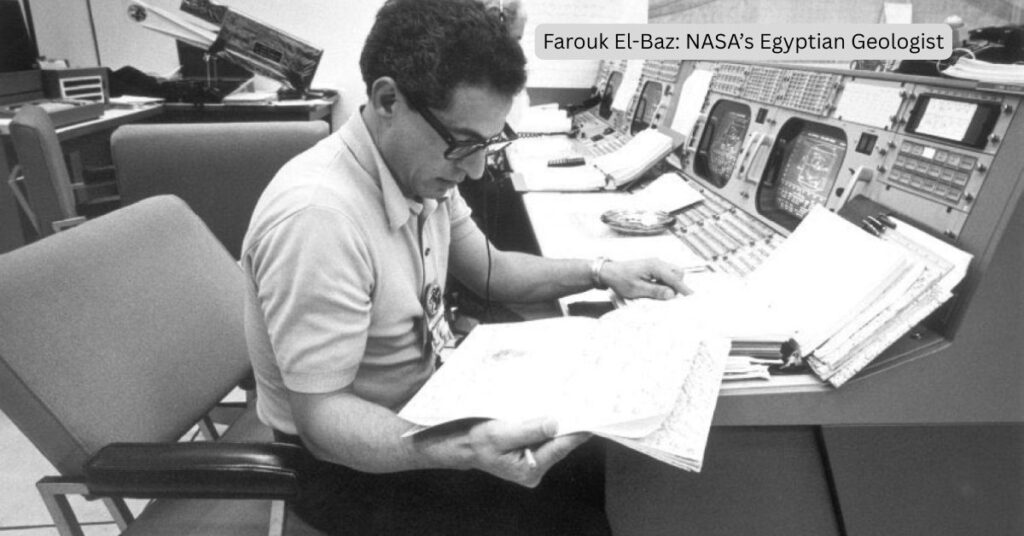Farouk El-Baz, an eminent Egyptian-American scientist, is celebrated for his groundbreaking contributions to geology and space exploration. Best known for his pivotal role in NASA’s Apollo program, El-Baz’s work helped revolutionize our understanding of the Moon while inspiring generations of scientists worldwide.
Early Life and Education
Born on January 2, 1938, in Zagazig, Egypt, Farouk El-Baz grew up with a natural curiosity about the Earth and its landscapes. He pursued his early education in Egypt, eventually earning a bachelor’s degree in Chemistry and Geology from Ain Shams University in Cairo. His passion for geology led him to the United States, where he continued his studies at Missouri University of Science and Technology, obtaining both a Master’s and a Ph.D. in Geology.
El-Baz’s academic excellence and dedication laid the foundation for what would become a remarkable career in both Earth sciences and space exploration.
Career at NASA
In 1967, Farouk El-Baz joined NASA, becoming one of the most influential scientists in the Apollo program. His expertise in geology was crucial in selecting lunar landing sites for Apollo missions. By analyzing satellite images and lunar photographs, El-Baz identified areas with scientific significance while ensuring the safety of astronauts—a delicate balance that required both technical skill and creative insight.
El-Baz’s work extended beyond site selection. He trained astronauts in geological fieldwork, teaching them how to identify and collect Moon rocks. This hands-on preparation was instrumental in the success of Apollo missions and in expanding human knowledge about the Moon’s surface.
Contributions to Space Exploration
Farouk El-Baz played a key role in Apollo 11, the first mission to land humans on the Moon. His guidance ensured that Neil Armstrong and Buzz Aldrin explored sites rich in geological features, maximizing the scientific value of the mission. El-Baz’s innovative methods in remote sensing and image analysis not only advanced lunar studies but also laid the groundwork for future planetary exploration, including Mars and other celestial bodies.
In addition to his work on the Moon, El-Baz contributed to the development of Earth-observation technologies, using satellite imagery to study desertification, water resources, and environmental changes on Earth. His ability to bridge space research with Earth sciences demonstrated a rare versatility in scientific thought.
Recognition and Legacy
Farouk El-Baz’s achievements have earned him global recognition. He has received numerous awards for his contributions to science and space exploration, including NASA’s Exceptional Scientific Achievement Medal. Beyond accolades, his greatest impact lies in his mentorship and advocacy for education, inspiring countless students, particularly in Egypt and the Arab world, to pursue careers in science and technology.
El-Baz has also authored books and articles that simplify complex scientific concepts, making space exploration accessible to the general public. His dedication to education ensures that his legacy continues through the next generation of scientists.
Beyond NASA
After retiring from NASA, Farouk El-Baz returned to Egypt, where he served as an advisor for scientific and space research projects. He played a crucial role in the establishment of Egypt’s space program and promoted initiatives that combine scientific research with practical applications for sustainable development.
Conclusion
Farouk El-Baz is more than a geologist; he is a visionary who helped humanity reach new heights—literally and figuratively. From guiding lunar missions to advancing Earth sciences, his work has left an indelible mark on both space exploration and scientific thought. As a proud Egyptian contributing to global scientific achievements, El-Baz remains a symbol of excellence, curiosity, and inspiration.





